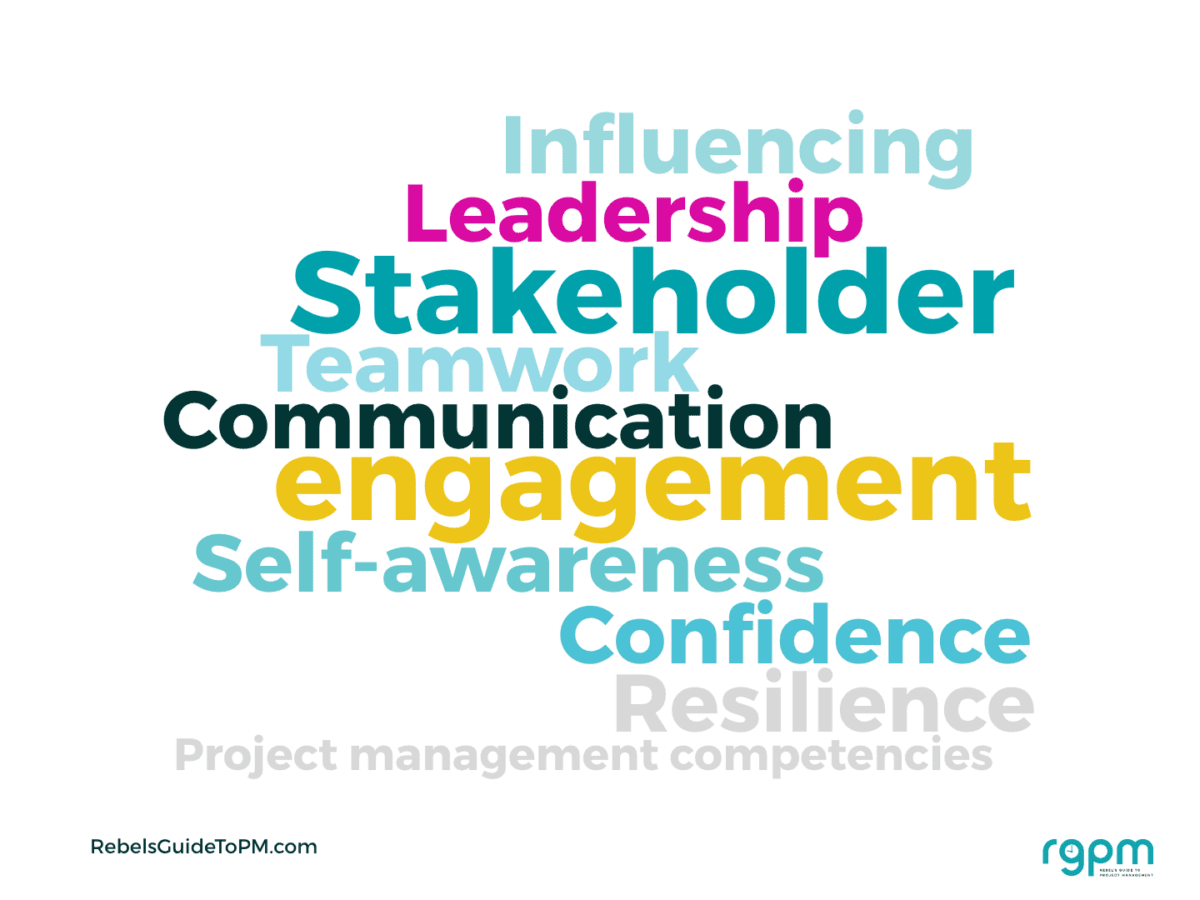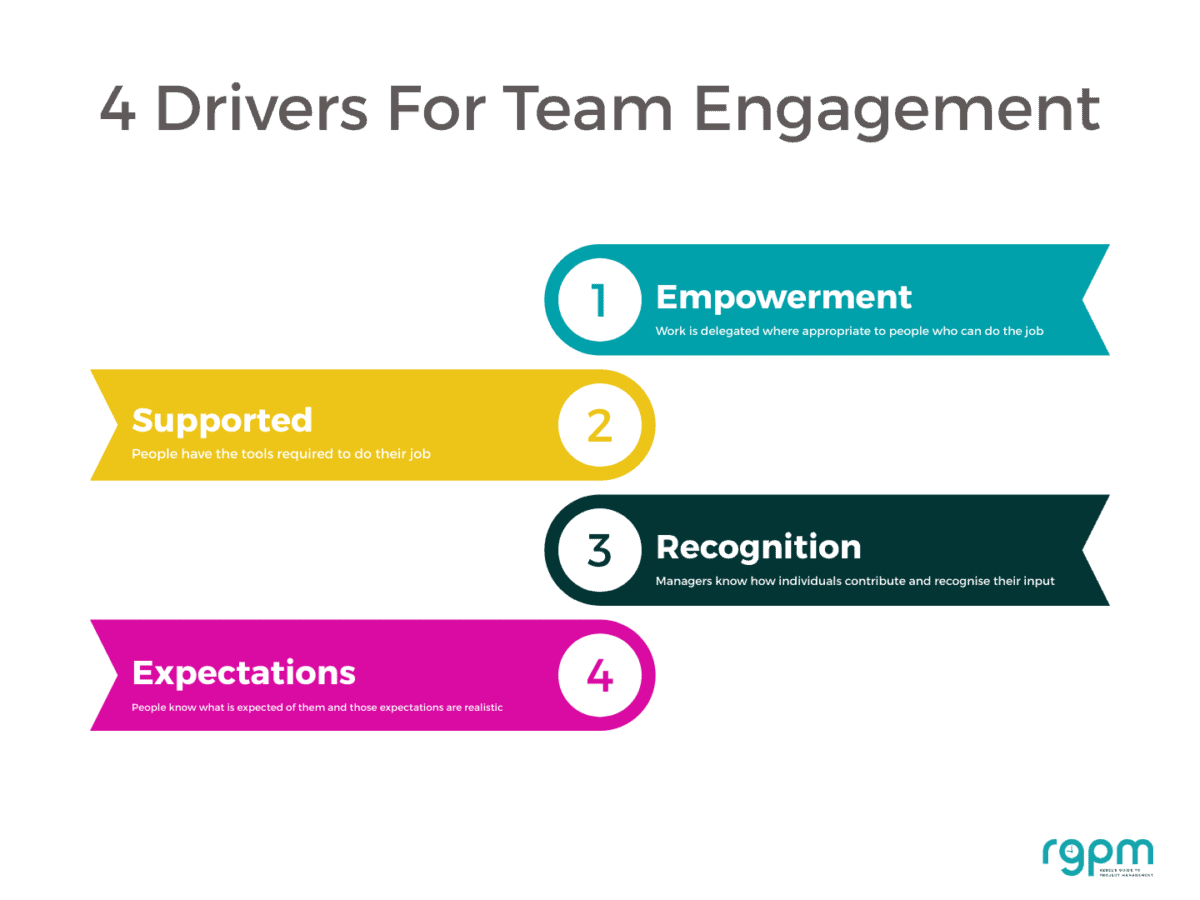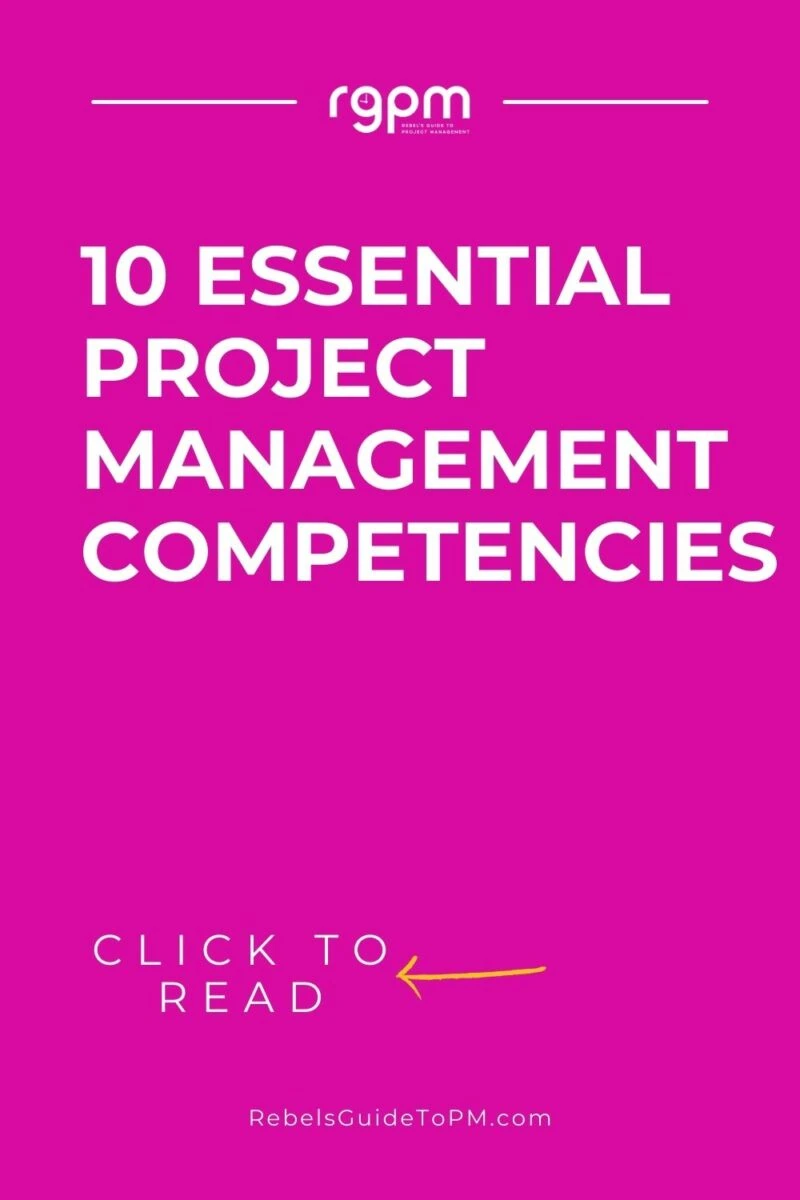11 Project management skills employers expect you to have
This blog is reader-supported. When you purchase something through an affiliate link on this site, I may earn some coffee money. Thanks! Learn more.
Let’s say that we’re almost at the end of the quarter and you’re thinking what a great year it’s been so far at work. Your thoughts turn to what you should be doing for your professional development in the months ahead… and there’s a lot of choice.
I don’t have the time (or the requirement) to take a certification course, but I’m always prepared to develop the project management competencies I need to succeed. If you feel the same, what should you be focusing on?
In this article we’ll talk about the top competencies for project managers and how you can develop your skills.

The core competencies you need as a project manager today
The project management skills you should be looking to develop are definitely ‘soft’ or interpersonal skills (also called power skills) in their widest form.
Soft skills include a huge range of topics from communication to leadership, stakeholder engagement and teamwork.
Plus, there are technical skills we have to consider — employers definitely look for those too. We do need to be able to do the hard work of leading projects as well as the collaboration side of it!
If you consider competency frameworks from the Association for Project Management (APM), or the guidance from the Project Management Institute (PMI), there are many more core skills listed.
In my 20+ years of experience doing the job and mentoring people who do the job, the ones I cover below are those that are most likely to ‘move the needle’ in your career, so that’s what we are focusing on in this article.
Let’s look at each of those in turn.
1. Communication
Effective communication is top of my list because it’s core to what we are trying to do as project managers: effect change.
One in five projects is unsuccessful due to ineffective communication, according to research by PMI (The Essential Role of Communications, 2013).
A project manager’s primary responsibility is to complete the project’s objectives with the resources provided within the agreed budget and schedule.
A communication plan is typically developed to successfully achieve that. That plan outlines the type and frequency of project communication, and any actions expected from various team members and stakeholders as information is distributed.
Sahil Sandhu’s research at the Harrisburg University concludes the same:
Effective communication came out top in the empirical research study into the order of importance that project managers ascribe to various competencies.
An effective project manager also communicates in a variety of ways including:
- Written e.g. newsletters, reports
- Verbal e.g. presentations
- Nonverbal (although you won’t necessarily be conscious of this all the time!)
- Video (recorded or live)
and more. You will likely spend 60% of your time (or more) on communication – yes, it’s that important. Effective communication can be the deciding factor between whether a project succeeds or fails in the eyes of the stakeholder.

2. Leadership
A project manager typically lacks formal authority over the resources on a project. In other words, the project team doesn’t report to you directly. They all have line managers of their own, and that can create some tension between their ‘home’ team and the project team in terms of responsibility and where their focus lies.
Regardless, the ability to inspire a team to action is a hallmark trait of a great project manager. They can take a diverse group of individuals, form a high performing team, and get them dedicated to achieving a common goal.
Developing leadership skills should be a priority, even though you probably don’t have hierarchical responsibility over the team. You don’t need to be top of the tree to be a good leader.
3. Self-awareness
We all have limits. A successful project manager will recognize their own limits and shortcomings. They don’t need to “do” all of the things, but they should know their strengths and those of others.
This lets them assign tasks to the best person for the job to achieve best outcomes. This also means they recognize where they may need to develop professionally and take proactive action to improve their own performance.
Self-awareness is one of the social competencies that help you operate effectively within the socio-political constraints of your organization.
4. Confidence
Project managers often find themselves in situations where they don’t have all of the information to make a decision or provide answers.
They must believe in themselves, be willing to take risks, and rely on their expert judgement. Having confidence is key, not only to ensure good outcomes, but to give others the general assurance that a project is under control.
Tip
You can be more confident in your outcomes if you work together (more on that later). For example, one of the top project scheduling mistakes I see is not co-creating the plan. When you bring the wisdom of the crowd to your work, you get a better result and something you can be confident delivering.
5. Resilience
A project manager is a high visibility role. Most will experience success and the occasional setback very publicly, more so if you are in a public sector role.
The ability to take everything in stride is of great importance because a team will often take their cues from you as their project lead. Having the ability to remain calm and bounce back after a challenge goes a long way and inspires confidence in their ability.
6. Teamwork
By default, a project manager works with teams of people – it is practically unavoidable. That’s why the best project managers are willing to share the successes but also accept responsibility for setbacks on a project. They are also willing to work with others and help the team when needed to accomplish a goal.
Lack of collaboration is one of the top roadblocks for projects so think about how you can create a culture where working together is the norm.
Tip
Think about the team structure you have set up. Is it conducive to collaborative working? If not, how could you improve it?

7. Business acumen
Business acumen is the ability to make good decisions and to use your professional judgement wisely.
In essence, this involves a thorough understanding of the business environment and financial context of your project, how it impacts the large picture, and proactively taking appropriate action(s).
For example, releasing some contingency reserves when project risk has been significantly reduced and it does not make sense to continue tying up funds. Juggling financial constraints can help the organization and show that you understand the importance of good budget management.
If you feel this is an area where you’d like to do more, get your company’s annual report to read or investigate industry trends.
Read next: Business acumen for project managers
8. Influencing and negotiating
While we may work in a variety of environments, most of the time we do not have 100% control over the budget and resources allocated to the project.
In most cases, other departments ‘own’ the key resources that advise, support, and get the work done. As such, sometimes we need to use our influence to support project success.
This may mean negotiating for people’s time and availability or resetting priorities with internal or external customers, dealing with scope creep and so on. The ability to influence and negotiate with project stakeholders and decision makers is key.
It’s really important to consider project management ethics in negotiation and influencing to make sure you keep everything above board.
9. Networking
In addition to influence and negotiation skills, networking plays a big role in projects. This is where you can really use your emotional intelligence.
This includes knowing the right people who can help with a specific problem. This could also mean establishing positive working relationships with others so if you need their help (or vice versa) reaching an agreement is faster and easier.
Building your networking skills is important because your network can provide additional support for your project. If you can find the right person quickly, you can often get a better solution or resolve a problem before it becomes a real issue.
10. Stakeholder engagement
Project managers rely on stakeholders to support their projects, make decisions, take action, or provide additional resources.
Part of that is delivering on the project plan and keeping your stakeholders aware of any challenges and specific ways that they can help. Having positive workplace relationships with engaged stakeholders who offer their support can sometimes make the difference between project success and failure.
If you have to focus on just one core skill, make it stakeholder engagement.
We are seeing more projects being affected by community action and involvement, it really is possible for a project to get stopped because the wrong people were engaged (or overlooked). After all, problems don’t stop projects, people do.
We’ve already seen ‘stakeholder management’ evolve in the project management language to ‘stakeholder engagement’ and a new chapter appear in A Guide to the Project Management Body of Knowledge (PMBOK® Guide). I think the area will grow in importance over the coming 10 years.

11. Technical competencies
There are also a wide range of technical skills you can build as a project manager, so when you are considering what development areas to focus on, it’s worth bearing these in mind as well:
- Project risk management
- Quality management
- Selecting the right tools for the job and for tracking project performance
- Human resources management – the processes of recruiting and onboarding people into the team
- Procurement and vendor management
- Financial management and budgeting
- Planning and scheduling.
I would also include tailoring of project management methodologies, which is a cross-cutting skill.
You can probably think of other ‘hard skills’ that would be relevant as well, there are plenty!
Don’t bother learning new project management tools
If you want to improve your technical project management skills, I would not bother to learn a new software tool.
There are so many, and the likelihood of your new company using something that you’ve learned how to use in your spare time is quite low.
Focus on making sure you’re a power user of Microsoft Teams or the
How to spot competency gaps
So how do you know which of the core competencies for project managers you should be focusing on?
Or how do you best advise and influence your team on what skills they should be developing?
Project performance is the main warning sign that there is a competency gap.
When something is taking too long or feels hard on a project, that’s a clue that more skills are needed.
However, it’s not always easy to define what a skilled project manager’s performance should be when it comes to project results. And that’s why competency gaps sometimes go unnoticed.
What to look for
As a line manager or a Project Office manager, or someone who leads project managers, here is what to look for. These clues will help you spot competency gaps so you can develop a plan to address them.
- Projects that skip between green and red
- Projects with a lot of ‘surprises’
- Projects with a long list of potential risks and issues that don’t seem to be managed
- Complaints from customers (that can be very telling!)
The challenge of identifying project management competency gaps
It’s not often possible to benchmark the performance of project managers against each other because the projects they are working on differ so widely.
And if a project is stopped prematurely or cancelled you can’t immediately assume it was to do with the project manager’s poor performance: more and more we need to be reviewing and closing down projects that are not meeting their business case goals.
It’s no one’s fault a lot of the time, it’s just the way that the business has evolved around the project.
But I think you’ll know within yourself if your project isn’t going right and it’s because you don’t have the skills to manage it.
Watch for this
Knowing you have a competency gap is not the same as Imposter Syndrome! Imposter Syndrome is where you do have the skills really but you’re unable to recognize that they are there. This affects your confidence and leads you to spend far too much time worrying about what other people think of your performance. At its worst, it can undermine your career and hold you back from achieving the success you deserve.
Read next: Learn more about Imposter Syndrome here
How to develop your skills (and those of your team)
Understanding what you need to work on to improve your skills is the first step in working out how to develop them.
As a manager, peer reviews, project audits and quality reviews can be ways to identify project performance issues that might be an outlier due to competency (or lack of competency!)
Then you can follow up with conversations: you may find that the individual in question is perfectly aware that they don’t have the required skills but no one has offered to help them do anything about it in the past.
Training is the obvious answer, but I don’t think this alone can really improve core competencies for project managers.
So much of ‘competency’ is tied up in long-term behavioral shift, understanding workplace culture and lived experience. This is hard to get in a two-day training session or an online course.
Supporting team members with project management mentoring and coaches is a more practical way to effect long term change and to really grow the skills of your project management team with any depth.
And that goes for you as well: if you know you need to work on a particular skill or competency element, think about whether you would be well served in a classroom setting or whether there’s a better way to develop the skills you need such as finding a mentor (or being a mentor).
Read next: 7 steps to a project management capability assessment
Next steps for developing competencies
While these skills may seem like a lot to manage, they are not something that you develop – or have to develop – overnight. While skills gaps may exist, they can be addressed methodically.
It’s OK to have a longer-term plan to address competency gaps and develop your own skills over time. Getting them and improving them partly depends on lived experience, project successes, and the occasional failure.
Although we talk about the 11 top competencies for project managers above, one of the most important and increasingly visible is stakeholder engagement. Doing this well can mean the difference between a successful project and one that gets shut down, so starting there can be a good step in the right direction.
Talking of steps…
Below you will find your action steps for taking this further.
Action steps
- Choose 2-3 skills to focus on at the moment. This helps avoid overwhelm and gives the opportunity for focused development before leveling up other skills.
- Ask colleagues to comment on your communication skills. What could you be doing better?
- Are you satisfied with the level of stakeholder engagement you are getting? If not, what are you going to do differently?
- Check out the competency models from your professional organization and see how you measure up.
Ready to take it further? If your work is tricky, learn about the 5 skills you need to manage complex projects.
